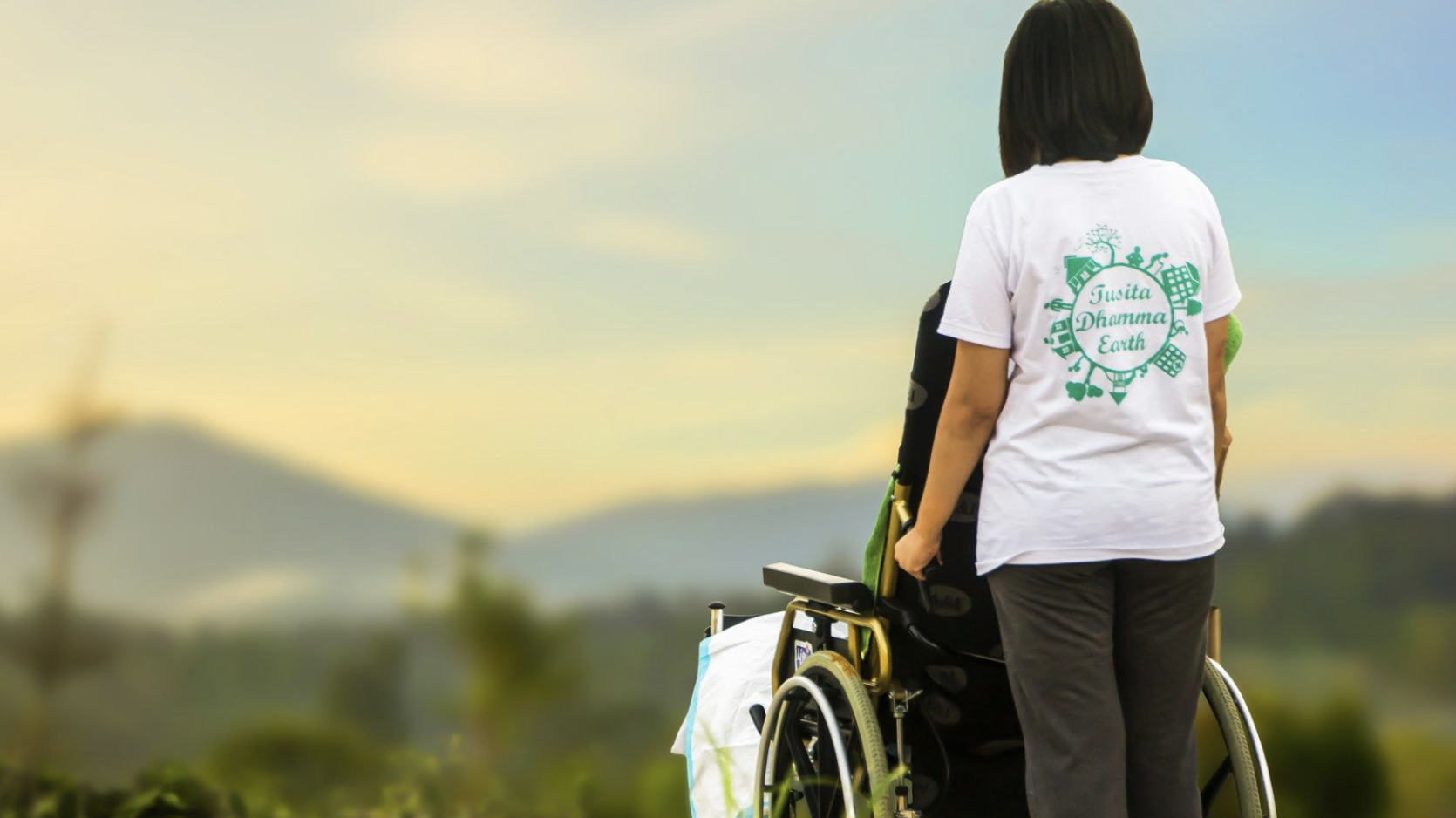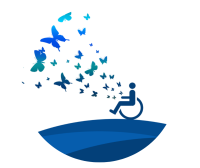Disability in Mission = Mission Possible (Part 2)
November 29th 2021
Disability in Mission: 4 Practical Areas to Consider
In our first blog post, we reflected on people with disability in mission. We ended with the Cape Town Commitment from Lausanne which calls mission leaders to facilitate people with disabilities, who sense God’s calling into mission, to go to the field. In other words, “it is our role to empower those with disability to answer the calling God has placed upon their lives.”[1]
In this blog post, we discuss some practical considerations when thinking “disability in mission,” and how we can enable people with disabilities or families affected by disability to serve in the mission field.

(1) Get to know the person or family living with disability
Each person with disability and family with a child with disability is unique, since different types of disability affect people in different ways. For example, it’s hard to compare someone with a physical disability to someone with an intellectual disability. Or to compare a child with Down Syndrome to a child with autism. Moreover, how disability affects a person’s life can differ among people living with the same disability. For example, some families affected by disability may have adapted very well, and function similarly to other families unaffected by disabilities. In other cases, disability may have a greater impact on family life. Therefore, it is important to make a concerted effort to get to know individuals and families well, rather than being content with a shallow understanding of them and their needs based on preconceived ideas about disability. This is similar to how we should get to know any person or family considering cross cultural ministry.
It is also important to understand their sense of calling to mission. How do they describe God’s leading toward mission engagement? Are they deeply convinced the Lord wants them on-field? Serving with disability in mission will almost certainly involve additional challenges, but if the applicant has a strong sense of calling, and the backing of their church, then they’ll be more likely to get through the tough times.
Isn’t calling and leading something we always want to understand when people are interested to serve cross-culturally?
We also want to understand how disability has shaped the person or family, and possibly made them more resilient. People with disabilities often must overcome multiple challenges and may have become more resilient as a result. This could potentially make them even more suitable for service than other applicants. Just like we want to understand any major events that have shaped any applicant.
(2) Consider the place of potential service
Besides understanding the person or family living with disability in all their uniqueness, it is important to consider the location of service. This isn’t much different from others we meet who are exploring mission. We routinely consider an applicant’s gifts, experiences, preferred geography, and relevant needs of the individual or family. For persons or families living with disability, we basically consider the very same things. If a family is applying, we consider educational options for the children. If the family has a child with disability, we also need to consider the educational options. Is there an international school at which the child can enrol? Would the family consider home-schooling? If so, what type of special education support would be available on the field?
So, we consider the various needed resources and see if we can locate those resources on the field.
We also give careful thought to the receiving team, as we do with all candidates. Are they open to receiving a person or family affected by disability? Do they have questions or concerns? If a team is unfamiliar with disability, they may initially feel apprehensive. How can we work with them? Open communication with the receiving team is essential. They need to know what they can expect. Importantly, by addressing relevant questions, the person with disability is likely to be welcomed by their new teammates.
(3) Provide the needed support on the field
Once new missionaries get to the field, they invariably need significant help to make a good start. They need to be shown where the shops are, they need to start with language study, and get to know the team. That is no different for missionaries with a disability, although they may need some extra or specific support.
During the initial time on-field it may be wise to consider some additional ‘scaffolding’ for the missionary with disabilities. They may encounter some unique or unexpected challenges the receiving team hasn’t previously dealt with. For example, the attitudes towards those with disability in non-Christian cultures may be negative, if not hostile. By providing some extra moments to check in with the missionary or family, additional needs can be picked up and support provided.
And then, do we need to make accommodations available that will help the applicant with disabilities to function well on the field? For example, George Stott got an artificial leg before he set sail to China with Hudson Taylor. That’s an example of an accommodation; one that massively helped Stott once he got to the field. And that was about 150 years ago! We may also think of educational resources when dealing with a child with disability. And you can think of other areas we can address that will help God’s servants make a lasting difference in mission.
When we consider some of the practical aspects of facilitating people with disabilities who are called to the mission field, we soon discover many of the considerations are quite similar to sending those without disabilities.
(4) Equip our own organisations
We may have to raise awareness for people with disabilities and advocate for them within our own organisations. This is new territory for many of us and for our colleagues. Do we have organisational barriers to engaging people with disability? Do we need to provide accommodations for people with disabilities so we can welcome them into our organisations? In our experience, mission organisations may be quite willing to welcome people with disabilities but may be unfamiliar in how to make it happen and how to work alongside people with disabilities. As leaders in our organisations, do we need to consider training in this regard?
Practically, what can you and your team do right now to further inform and equip your organisation to enable people with disabilities to serve in mission? Here are some suggestions to get you started…
1. Read Nathan’s book: Disability in Mission: Treasures of the Church. To order a copy, click here.
2. Come and join our network meetings. Contact MI for further information.
3. Start a “Disability in Mission” conversation in your organisation
Our prayer is that your efforts as a mission leader in this important space will bring much glory to God as individuals and families living with disability play their part in making Jesus known throughout the world. It will take some effort, but we are convinced the rewards will be exponential. We have seen it for ourselves.
[1] Deanna Richey, “Mission Possible: The Role of Member Care in Mobilizing Workers with Disabilities,” in Disability in Mission, ed. John & Deuel. Chapter 11.

Simon Longden, Nathan G John, Marla Hale
Written by members of the “Disability in Mission” Network
Simon Longden
Simon serves as the Director of Pioneers Australia with 240 Aussies (and their 200 kids) serving on teams around the world. He is married to Joy and they have two daughters and one son-in-law, and are expecting their first grandchild in December.
Nathan G John
Nathan gained his doctorate at the University of Oxford. He researches on disability measurement and in 2011 he founded a Community Based Disability program before working to establish a network of disability providers across India (Engage Disability). His firstborn daughter has a profound developmental disability, giving him a personal as well as professional interest in this area.
Marla Hale
Marla has a background in special education and theology. She has extensive experience in disability ministry in Asia, where she previously lived. Marla is currently pursuing a doctorate with a focus on disability theology, and resides with her family in Sydney.
← Disability in Mission = Mission Possible (Part 1)Transition→